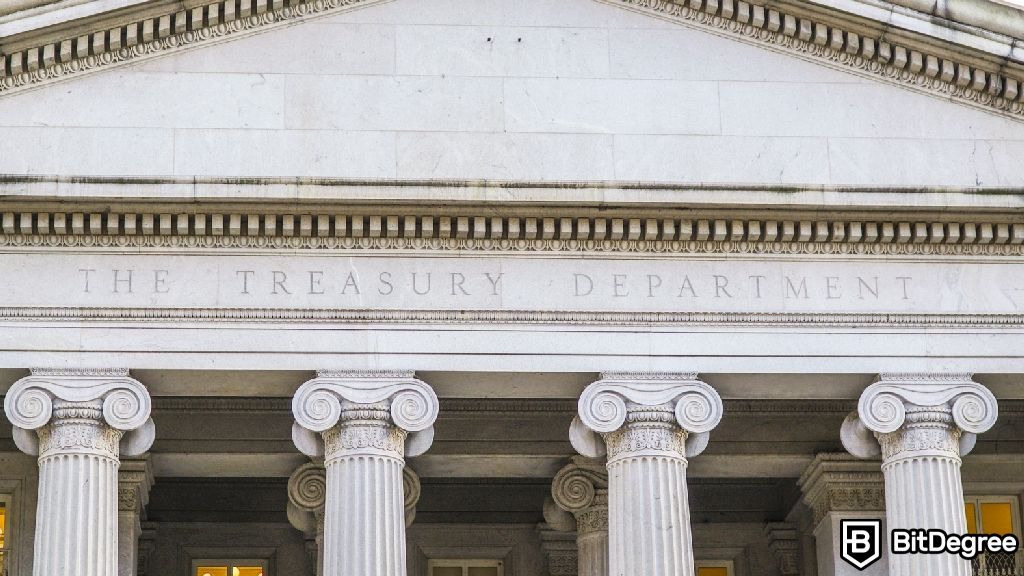[ad_1]
Key Takeaways
- The U.S. Treasury has clarified that the use of cryptocurrencies by terrorist groups like Hamas has been significantly overestimated.
- Traditional financial systems remain the preferred method for these groups despite the narrative that digital assets are their main source of funding.
- The Treasury is advocating for more accurate representations of the relationship between cryptocurrencies and terrorism to inform legislative and regulatory efforts.
The narrative that cryptocurrencies played a significant role in financing terrorist activities, such as those carried out by Hamas in Israel in 2023, has been scrutinized and clarified by the U.S. Department of the Treasury.
In a recent congressional hearing, Brian Nelson, the Treasury’s Under Secretary for Terrorism and Financial Intelligence, addressed the misconceptions surrounding the issue, offering a fresh perspective on the matter.

Did you know?
Want to get smarter & wealthier with crypto?
Subscribe – We publish new crypto explainer videos every week!
During a session with the House Financial Services Committee, Nelson emphasized that the actual amount of crypto utilized by such entities is likely much less than previously assumed.
This statement came after the Wall Street Journal reported about crypto payments worth millions of dollars made to terrorist organizations, based on a blog post by analytics firm Elliptic that had been corrected.
Representative Tom Emmer highlighted the discrepancy between reported figures and the Treasury’s assessment, pointing out the overestimation of crypto’s role in funding terrorism.
Nelson added that traditional financial methods and services are still the preferred channels for these groups, despite the sanctions imposed by the Treasury on various businesses and financial institutions accused of facilitating such support.
The discussion also touched upon the broader implications of this misrepresentation, with Nelson urging for a formal correction to counteract the misinformation that has influenced legislative proposals aimed at imposing strict regulations on the crypto industry.
Despite this, Nelson reaffirms that the government is:
Focused on disrupting these groups’ ability to leverage digital assets.
Debunking the overblown claims about cryptocurrency’s role in funding terrorism emphasizes the need for accurate data to guide regulation and maintain a fair balance between industry growth and security measures.
To combat issues related to illicit finance involving crypto, Nelson called for increased legislative powers.
Having completed a Master’s degree on Economics, Politics & Culture for the East Asia region, Aaron has written scientific papers with a comparative analysis of the differences between US’ Western and Japan’s Collective forms of capitalism, 1945-2020.
With close to a decade of experience in the FinTech industry, Aaron understands all of the biggest issues and struggles that crypto enthusiasts face. He’s a passionate analyst who is concerned with data-driven and fact-based content, as well as that which speaks to both Web3 natives and industry newcomers.
Aaron is the go-to person for everything and anything related to digital currencies. With a huge passion for blockchain & Web3 education, Aaron strives to transform the space as we know it, and make it more approachable to complete beginners.
Aaron has been quoted by multiple established outlets, and is a published author himself. Even during his free time, he enjoys researching the market trends, and looking for the next supernova.
[ad_2]
Source link




